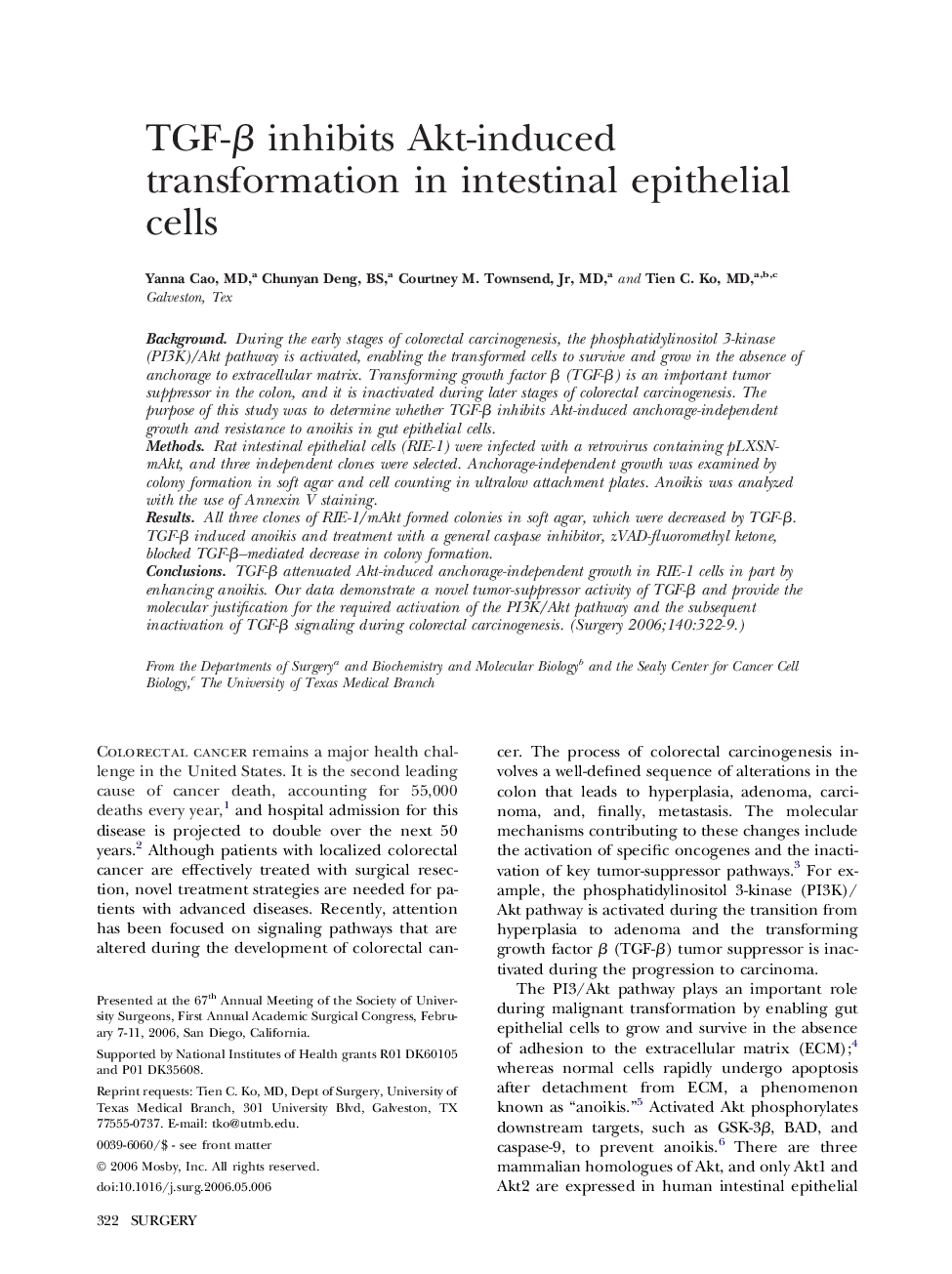| Article ID | Journal | Published Year | Pages | File Type |
|---|---|---|---|---|
| 4310019 | Surgery | 2006 | 8 Pages |
BackgroundDuring the early stages of colorectal carcinogenesis, the phosphatidylinositol 3-kinase (PI3K)/Akt pathway is activated, enabling the transformed cells to survive and grow in the absence of anchorage to extracellular matrix. Transforming growth factor β (TGF-β) is an important tumor suppressor in the colon, and it is inactivated during later stages of colorectal carcinogenesis. The purpose of this study was to determine whether TGF-β inhibits Akt-induced anchorage-independent growth and resistance to anoikis in gut epithelial cells.MethodsRat intestinal epithelial cells (RIE-1) were infected with a retrovirus containing pLXSN-mAkt, and three independent clones were selected. Anchorage-independent growth was examined by colony formation in soft agar and cell counting in ultralow attachment plates. Anoikis was analyzed with the use of Annexin V staining.ResultsAll three clones of RIE-1/mAkt formed colonies in soft agar, which were decreased by TGF-β. TGF-β induced anoikis and treatment with a general caspase inhibitor, zVAD-fluoromethyl ketone, blocked TGF-β–mediated decrease in colony formation.ConclusionsTGF-β attenuated Akt-induced anchorage-independent growth in RIE-1 cells in part by enhancing anoikis. Our data demonstrate a novel tumor-suppressor activity of TGF-β and provide the molecular justification for the required activation of the PI3K/Akt pathway and the subsequent inactivation of TGF-β signaling during colorectal carcinogenesis.
